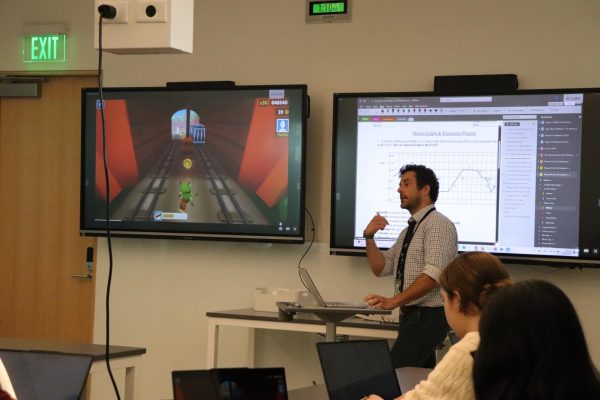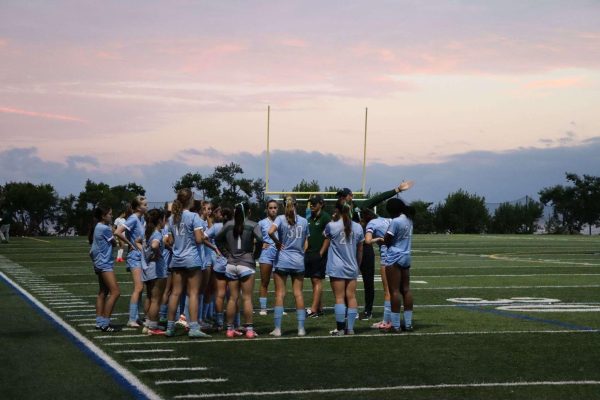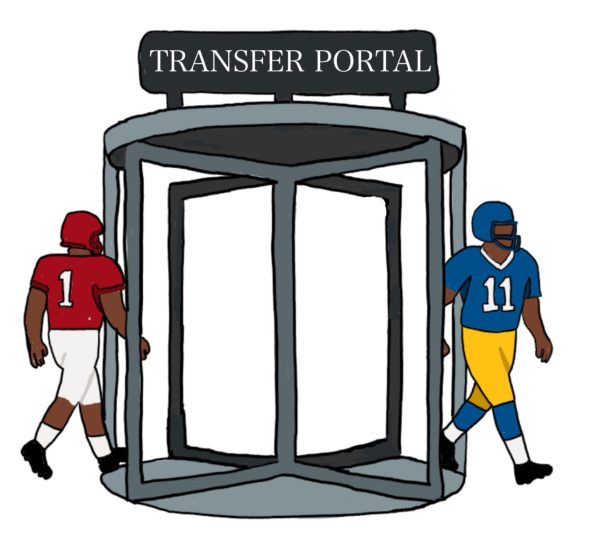What the heck are esports? An explainer
December 8, 2021, 9:30pm. After three months of practicing and preparing for this moment, Luke Sahs ’22 and his team scrimmaged one last time before their final match. Coming in as the heavy underdog, the team was ready to pull out all the stops. Sahs sat down, put on his headphones, readied his hands on the keyboard and mouse, and booted up ‘Team Fortress 2’—actions he had performed countless times. The match went down to the final game, with Sahs’s team starting down 3-0. With one loss away from being relegated to 2nd place, the team buckled up and proceeded to pull off a reverse sweep to win the game 4-3, a comeback story reminiscent of some of the greatest ever: the Cavaliers coming back from down 3-1 in a series, the Falcons blowing a 28-3 lead in the Super Bowl, and the reverse sweep by the Boston Red Sox that led to their first World Series in 86 years.
Sahs didn’t just walk away with glory. He and his team won $4,000—per player.
These types of comeback stories are integral to sports, which have been at the center of human society for thousands of years. For the most part, people tend to define them as competitive physical activities. However, that basic definition is being tested by the meteoric rise of esports, which have been gaining popularity and mainstream appeal in recent years.
What are esports? In short, they are video games played competitively, and there are more of them than you might think. If the game has a large enough competitive scene, that game is more than likely an eSport. The most obvious ones are fighting games like ‘Street Fighter’ and ‘Super Smash Bros,’ team-based shooters like ‘Valorant’ and ‘Call of Duty,’ and multiplayer online battle arenas, or MOBAs, like ‘DOTA 2’ and ‘League of Legends,’ but innumerable other games have some form of competitive scene. One of the most popular competitive games is Pokémon. And, in an ironic twist of fate, sports video games like ‘Madden’ are hugely popular esports, with the game developer EA and the NFL itself sponsoring big tournaments.
While the expanding audience of gaming itself has played a crucial role in the rise of esports, its real driver has been the internet, which has not only given players more ways to compete with strangers but also given audiences more ways to watch competitions. Platforms such as Twitch and YouTube are bombarded with people streaming or recording videos of themselves playing practically any game. Twitch specifically has seen explosive growth over the last 10 years, with the average number of viewers going from 102,000 per day in 2012 to 2.93 million a day in 2022. Most of the games streamed nowadays are esports, either with pro players or avid fans participating. In fact, eight out of the top 10 games watched on Twitch are esports.
Like any sport, esports depend on more than just the players on stage. They involve commentators, technicians, stage designers, and many other positions. “Esports is also a major industry worth over a billion dollars and closely linked to other industries like live-streaming and video editing,” explained Mihir Pabby ’22, the president of RE’s REsports Team, which has been active since 2020.
The prize pools for esports tournaments can range from a few dollars to millions. Obviously, more money incentivizes participation, but according to Sahs, money wasn’t on his mind while participating in the ‘Team Fortress 2’ competition. “It really doesn’t matter too much. Money can have an influence since a large prize pool can motivate people, but more often than not, people don’t care about the prize pool, as they enter the tournament for fun,” he said.
For Sahs, joining an esports team was a natural extension of what he was already doing. “I was kind of bored with just playing online competitively, so I looked into joining a team,” he said. Sahs had dabbled in competitive Team Fortress 2 before last year, but he really started participating in September 2021. The TF2 tournament lasted around 13 weeks.
Max Vallone ’22, a co-founder of the REsports Team, had a very different path into competitive gaming, however. “I’ve never been much of an avid gamer,” he said, “but I started getting into esports just from the viewership side around 10th grade.”
Though it is still a relatively new organization, the REsports Team has already seen success on the national level, placing top 16 in the High School Esports League’s national rankings in ‘Valorant’ last year. Vallone and the rest of the ‘Valorant’ team are currently practicing for the HSEL Spring Major, another national tournament hosted by the league.
In Pabby’s view, the Team doesn’t just give participants the opportunity to hone their skills at particular games. The team offers “a competitive outlet for students to learn teamwork and communication skills through gaming. We play fast-paced games in teams of 5 and a major component of those games is efficient and accurate communication,” he said.
He also envisions the team as an activity that will help students develop technical and creative skills related to esports, in a world where such skills are increasingly in demand. “[I see this] becoming a program that is used to teach students skills such as video editing and managing live streams. It will remain as a competitive team, but also will be used to teach various digital classes,” he said. “We are giving students some familiarity with future career choices.”
As the mass appeal of esports continues to grow—according to the BBC, there are even talks of bringing esports to the Paris Olympics in 2024—the Team is ready for the future. “I see the future of the industry as progressing towards a popular spectator sport. It has all the advantages of traditional sports while being more alluring to many millennials and gen Z. Already, we are seeing esports arenas and broader coverage of popular games,” Vallone said.

Quinn Lennon '22 is a Co-Editor in Chief and writer for The Catalyst, specifically covering sports news, features, and scores.









